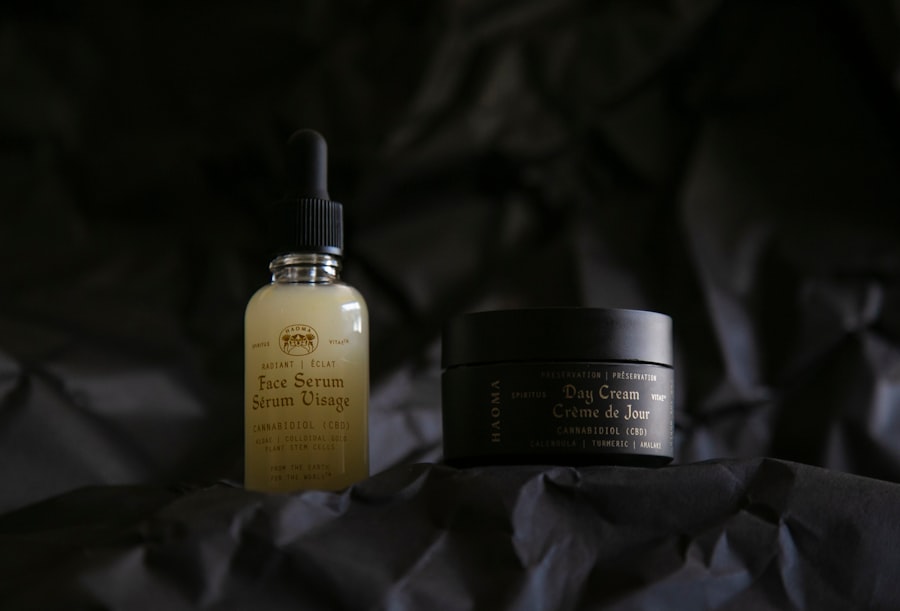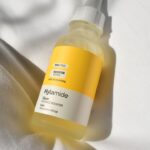After undergoing a laser skin treatment, it’s essential to grasp the intricacies of the post-laser skin care process. Your skin has just experienced a significant procedure, and it requires special attention to ensure optimal healing and results. The laser treatment may have targeted issues such as pigmentation, wrinkles, or acne scars, but the aftermath is just as crucial as the treatment itself.
Understanding what your skin needs during this recovery phase can make a substantial difference in how quickly and effectively it heals. You may notice that your skin feels sensitive, and it might even appear red or swollen immediately after the procedure. This is a normal reaction as your skin begins to heal.
It’s important to be patient and allow your skin the time it needs to recover fully. Familiarizing yourself with the recommended post-care practices will empower you to take charge of your healing journey. By following these guidelines, you can enhance the results of your treatment and minimize any potential complications.
Key Takeaways
- Post-laser skin care involves gentle cleansing, moisturizing, and protecting the skin from sun exposure.
- Hydrating and moisturizing the skin is crucial to maintain its health and promote healing after laser treatment.
- Sun protection is essential to prevent damage and pigmentation after laser treatment.
- Harsh chemicals and irritants should be avoided to prevent further irritation and sensitivity post-laser treatment.
- Gentle cleansing and exfoliating can help to remove dead skin cells and promote skin renewal without causing irritation.
Hydrating and Moisturizing the Skin
One of the most critical aspects of post-laser skin care is ensuring that your skin remains adequately hydrated and moisturized. After a laser treatment, your skin may feel dry or tight, which can be uncomfortable. To combat this, you should incorporate a high-quality moisturizer into your daily routine.
Look for products that contain soothing ingredients like hyaluronic acid, glycerin, or ceramides, as these can help lock in moisture and create a protective barrier on your skin. In addition to using a moisturizer, drinking plenty of water is essential for maintaining hydration from within. Staying well-hydrated not only benefits your skin but also supports overall health.
Aim to drink at least eight glasses of water a day, and consider incorporating hydrating foods into your diet, such as cucumbers, oranges, and leafy greens. By prioritizing hydration, you’ll help your skin recover more quickly and achieve a radiant complexion.
Protecting the Skin from Sun Exposure

Sun protection is paramount in the post-laser skin care regimen. Your skin will be particularly vulnerable to UV rays after a laser treatment, making it crucial to shield it from sun exposure. Even minimal sun exposure can lead to complications such as hyperpigmentation or prolonged redness.
Therefore, applying a broad-spectrum sunscreen with an SPF of at least 30 is non-negotiable. Make it a habit to apply sunscreen every morning, even on cloudy days or when you plan to stay indoors. In addition to sunscreen, consider wearing protective clothing and seeking shade whenever possible.
A wide-brimmed hat can provide extra protection for your face and neck, while sunglasses can shield your eyes from harmful rays. Being proactive about sun protection will not only aid in your recovery but also help maintain the results of your laser treatment in the long run.
Avoiding Harsh Chemicals and Irritants
| Product | Chemical/Irritant | Alternative |
|---|---|---|
| Shampoo | Sulfates | Sulfate-free shampoo |
| Laundry Detergent | Fragrances | Fragrance-free detergent |
| Hand Soap | Parabens | Paraben-free hand soap |
After a laser procedure, your skin is in a delicate state, making it essential to avoid harsh chemicals and irritants that could exacerbate sensitivity or cause adverse reactions. This means steering clear of products containing alcohol, fragrances, or strong exfoliants for at least a few weeks post-treatment. Instead, opt for gentle, fragrance-free products that are specifically formulated for sensitive skin.
You should also be cautious about introducing new products into your skincare routine during this time. While it may be tempting to try out the latest beauty trends or treatments, your skin needs stability and care right now. Stick to a simple routine that focuses on hydration and protection until your skin has fully healed.
By avoiding harsh ingredients and sticking to gentle formulations, you’ll create an environment conducive to healing.
Gentle Cleansing and Exfoliating
Cleansing is an essential part of any skincare routine, but after laser treatment, it’s vital to approach this step with care. You should choose a gentle cleanser that won’t strip your skin of its natural oils or cause irritation. Look for products labeled as “sensitive” or “hydrating,” which can effectively cleanse without compromising your skin’s barrier.
While regular exfoliation can help maintain healthy skin, aggressive scrubs or chemical exfoliants should be avoided immediately after laser treatment. Instead, consider using a soft washcloth or a gentle exfoliating pad to remove dead skin cells without causing trauma.
As your skin heals and becomes less sensitive, you can gradually reintroduce exfoliation into your routine, but always listen to your skin’s needs.
Incorporating Antioxidants and Nutrients

Incorporating antioxidants and nutrients into your post-laser skincare routine can significantly enhance healing and promote healthier skin. Antioxidants like vitamin C and E are known for their ability to combat free radicals and reduce inflammation, making them excellent additions to your regimen after laser treatment. Look for serums or creams that contain these powerful ingredients to help support your skin’s recovery process.
Additionally, consider incorporating products rich in vitamins A and B into your routine. These vitamins can aid in cell turnover and repair damaged skin while promoting an even tone and texture. However, it’s essential to introduce these products gradually and monitor how your skin reacts.
By nourishing your skin with antioxidants and essential nutrients, you’ll be taking proactive steps toward achieving optimal results from your laser treatment.
Managing Redness and Inflammation
Redness and inflammation are common side effects following laser treatments, but there are effective ways to manage these symptoms during the healing process. Cold compresses can provide immediate relief by soothing irritated skin and reducing swelling. Simply wrap ice cubes in a clean cloth or use a chilled gel mask to gently apply to the affected areas for short periods.
Over-the-counter hydrocortisone creams may also help alleviate inflammation; however, it’s crucial to consult with your dermatologist before using any new products during this sensitive time. They can recommend appropriate treatments tailored to your specific needs. Additionally, keeping stress levels in check through relaxation techniques such as yoga or meditation can also contribute positively to managing redness and inflammation.
Seeking Professional Advice and Follow-up Care
Finally, seeking professional advice and follow-up care is an integral part of the post-laser skin care process. Your dermatologist will provide personalized recommendations based on your unique skin type and the specific laser treatment you received. Regular follow-up appointments allow them to monitor your progress and address any concerns that may arise during the healing process.
Don’t hesitate to reach out if you experience unexpected side effects or if you have questions about your skincare routine. Your dermatologist is there to support you on this journey toward healthier skin. By staying engaged with professional guidance, you’ll not only enhance your recovery but also ensure that you achieve the best possible results from your laser treatment.
In conclusion, navigating the post-laser skin care process requires diligence and care. By understanding the importance of hydration, sun protection, gentle cleansing, and professional guidance, you can foster an environment conducive to healing while maximizing the benefits of your treatment. Remember that every step you take in caring for your skin contributes to its overall health and appearance in the long run.
If you’re looking for more information on how to take care of your skin after laser treatment, you may want to check out this article on inlaserhairremoval.com. This website offers a variety of resources and tips for maintaining healthy skin post-laser treatment. Additionally, you can also explore their home fashion section for advice on creating a relaxing environment to aid in your skin’s recovery.
FAQs
What is laser skin treatment?
Laser skin treatment is a cosmetic procedure that uses focused light to improve the appearance of the skin. It can be used to treat a variety of skin concerns, including wrinkles, scars, and pigmentation issues.
How do you take care of your skin after laser treatment?
After laser treatment, it is important to follow the post-care instructions provided by your dermatologist or skincare professional. This may include keeping the treated area clean and moisturized, avoiding sun exposure, and using gentle skincare products.
Can I wear makeup after laser treatment?
It is generally recommended to avoid wearing makeup for the first few days after laser treatment to allow the skin to heal properly. Once the skin has fully healed, you can gradually reintroduce makeup, making sure to use gentle, non-irritating products.
How long does it take for the skin to heal after laser treatment?
The healing time after laser treatment can vary depending on the type of laser used and the specific skin concerns being addressed. In general, it may take anywhere from a few days to a few weeks for the skin to fully heal and for the results of the treatment to become apparent.
What should I avoid after laser treatment?
After laser treatment, it is important to avoid sun exposure, as the skin may be more sensitive to UV rays. It is also recommended to avoid using harsh skincare products, hot water, and abrasive exfoliants until the skin has fully healed.




